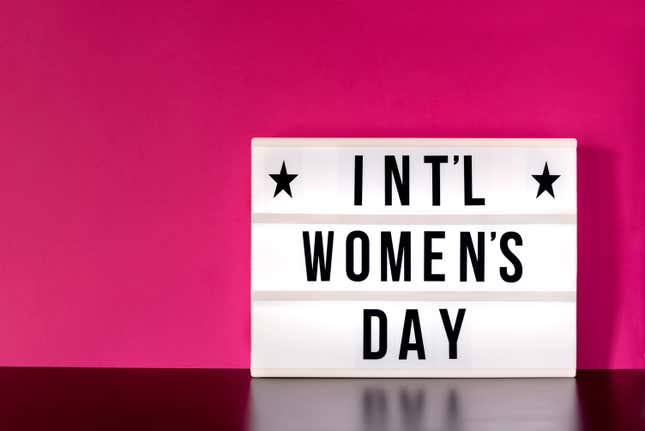International Women’s Day Isn’t a Corporate Holiday, You Ghouls
A holiday with a rich, socialist history has largely become a branding opportunity for corporations that chronically underpay and mistreat women workers.
In DepthIn Depth

March 8—today!—is International Women’s Day, a time to celebrate the women in your life, or, in recent years, for brands and corporations to make a quick buck off cosplaying respect for women while chronically underpaying them and making their lives worse.
In one of the most iconic examples of this, McDonald’s, the fast food chain that was recently hit with a sexual harassment class action lawsuit by its workers, flipped its golden “M” to a “W” ostensibly to honor women back in 2018. Many were puzzled by the gesture, which, on top of being dumb for all the obvious reasons, seemed like a lot more work and perhaps even more money than simply paying McDonald’s workers—most of whom are women, and particularly women of color—a living wage.
Today, Apple appears to be celebrating IWD by “challenging” women via their Apple watches to exercise for 20 minutes, instead of just closing the noted gender race and wage gap among its employees.
The UK’s iVisit took this year’s International Women’s Day as an opportunity to promote the tourist attraction the London Dungeon with a tweet converting notorious serial killer Jack the Ripper (who murdered several women) to “Jackie the Ripper” for a day, because representation—including in the serial killer space—matters!
-

-

-

-

-

-

-

-

-

-

-

-

-

-

-

-

-

-

-

-

-

-

-

-

-

-

-

-

-

-

-

-

-

-

-

-

-

-

-

-








































